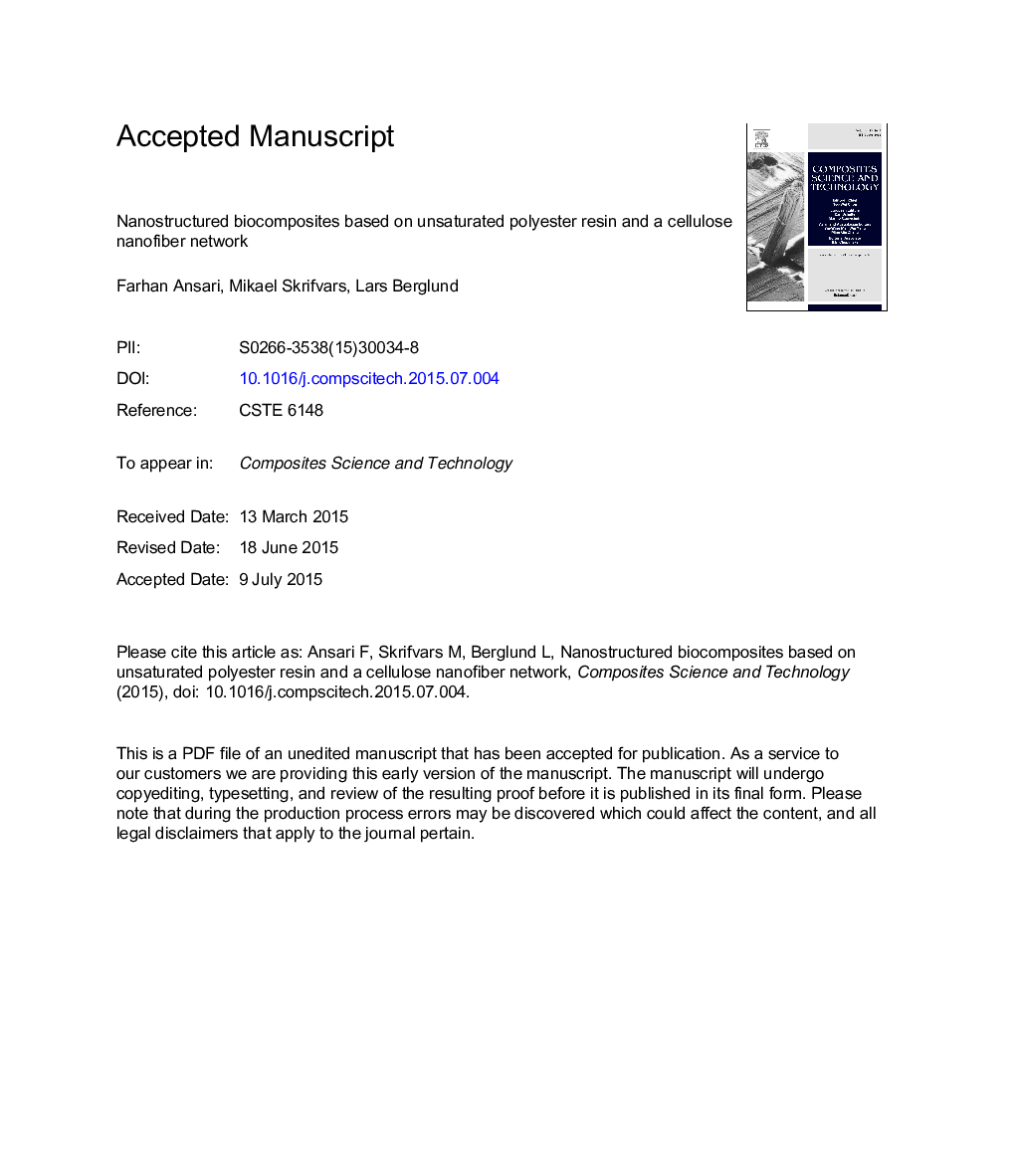| Article ID | Journal | Published Year | Pages | File Type |
|---|---|---|---|---|
| 7215438 | Composites Science and Technology | 2015 | 24 Pages |
Abstract
Biocomposites reinforced by natural plant fibers tend to be brittle, moisture sensitive and have limited strength. Wood cellulose nanofibers (CNF) were therefore used to reinforce an unsaturated polyester matrix (UP) without the need of coupling agents or CNF surface modification. The nanostructured CNF network reinforcement strongly improves modulus and strength of UP but also ductility and toughness. A template-based prepreg processing approach of industrial potential is adopted, which combines high CNF content (up to 45Â vol%) with nanoscale CNF dispersion. The CNF/UP composites are subjected to moisture sorption, dynamic thermal analysis, tensile tests at different humidities, fracture toughness tests and fractography. The glass transition temperature (Tg) increases substantially with CNF content. Modulus and strength of UP increase about 3 times at 45Â vol% CNF whereas ductility and apparent fracture toughness are doubled. Tensile properties at high humidity are compared with other biocomposites and interpreted based on differences in molecular interactions at the interface.
Related Topics
Physical Sciences and Engineering
Engineering
Engineering (General)
Authors
Farhan Ansari, Mikael Skrifvars, Lars Berglund,
